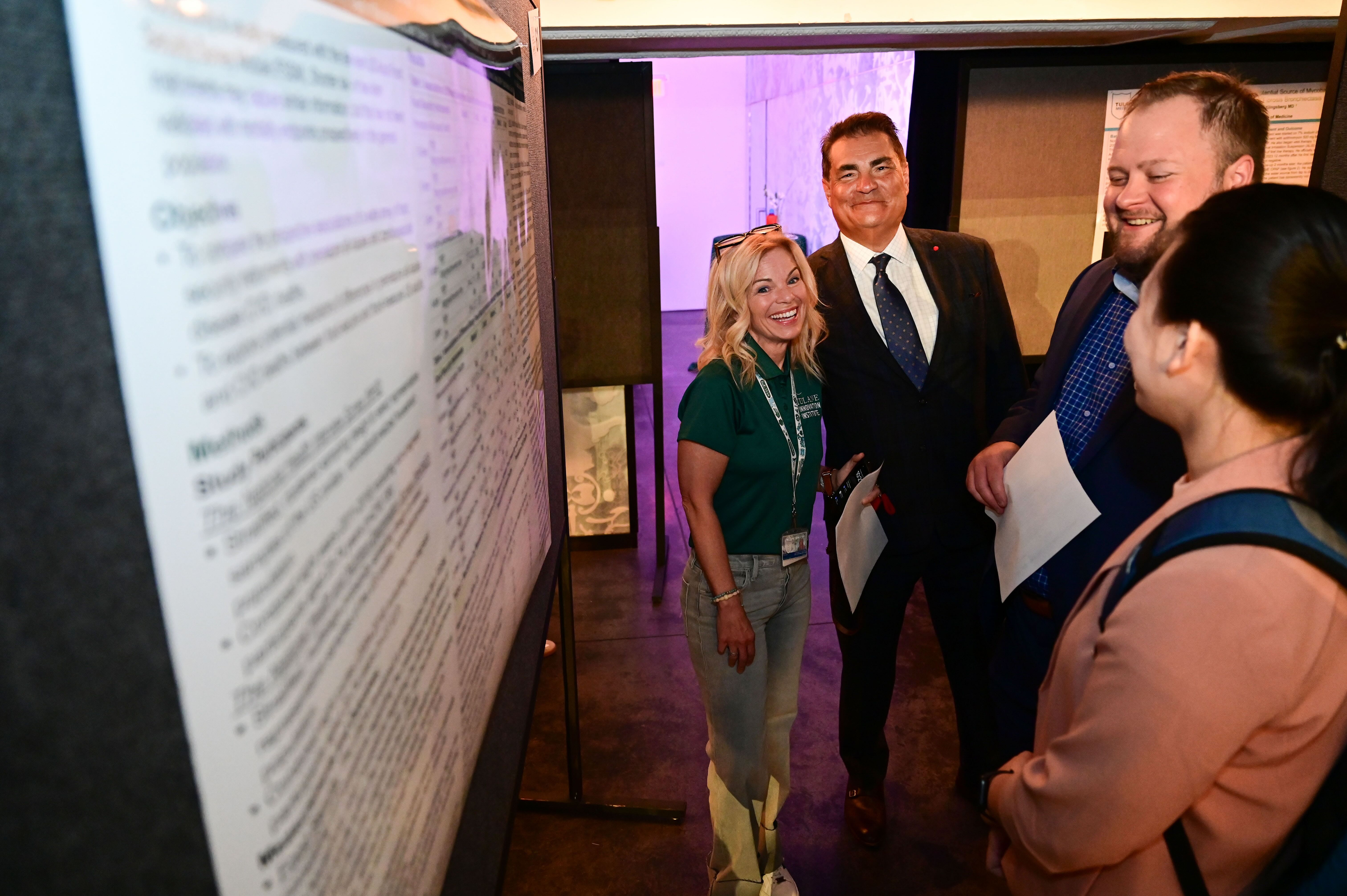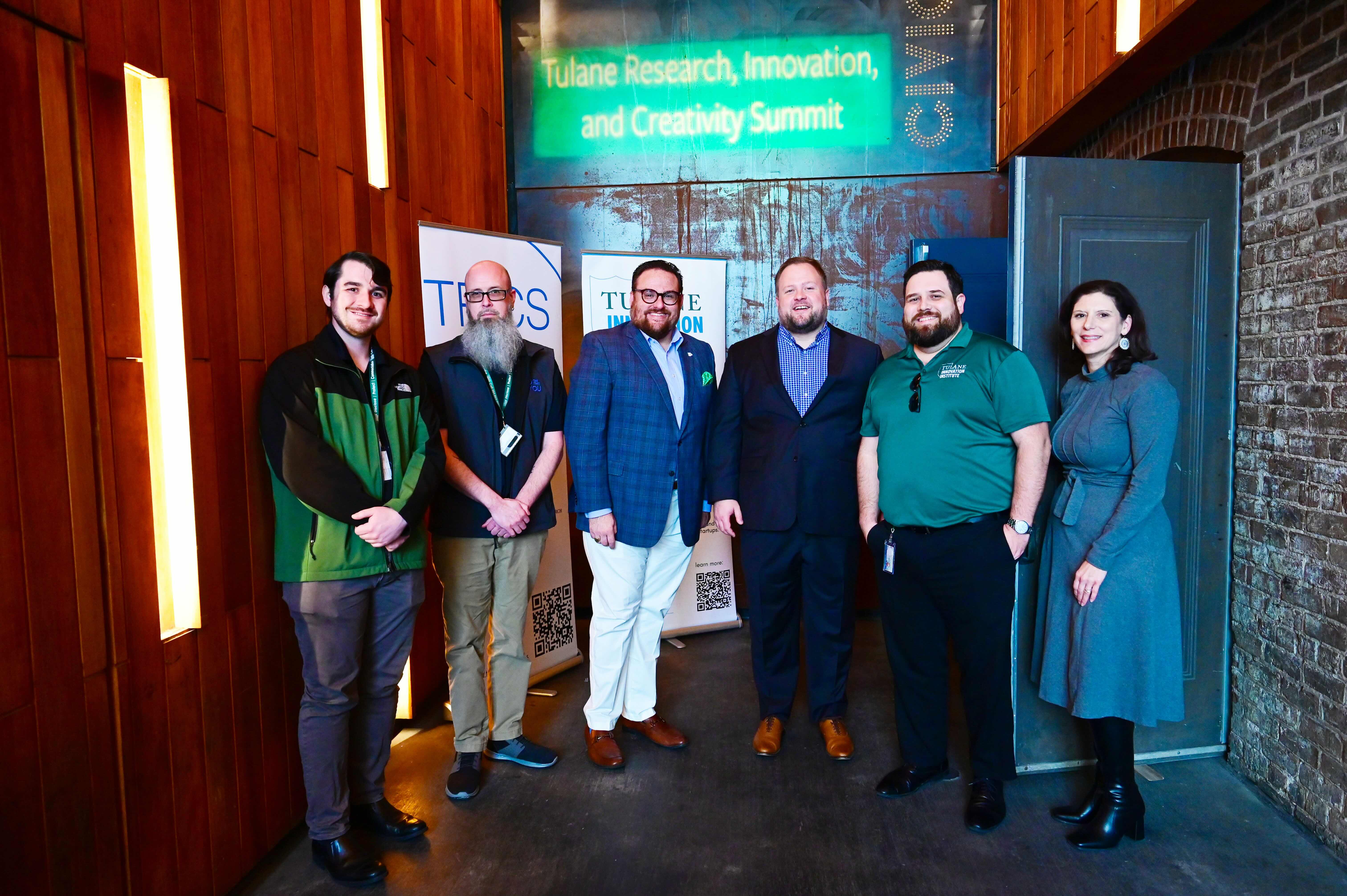Tulane Innovation Institute Launches "Go Green" to Simplify Licensing and Accelerate Commercialization

Pictured from left to right | Dr. Kimberly Gramm (Tulane Innovation Institute), Dr. Giovanni Piedimonte (Tulane University Office of Research), Matthew Koenig, J.D (Tulane Innovation Institute and Office of Intellectual Property Management)
April 22, 2025
The Tulane Innovation Institute, in collaboration with the Office of Research, has launched Go Green, a program designed to simplify and expedite the licensing of university-owned intellectual property. This initiative aims to transform the movement of Tulane discoveries from labs to the marketplace.
Kimberly Gramm, PhD, Tulane Innovation Institute David and Marion Mussafer Chief Innovation & Entrepreneurship Officer, emphasized the benefits of this new initiative for faculty. "Go Green will make it easier for Tulane faculty, staff, and researchers to take their discoveries beyond the lab. We've removed unnecessary obstacles so they can focus on what they do best— bringing their visionary ideas to life and making a tangible impact in the world."
By reducing administrative and financial constraints, Go Green provides a standardized and transparent licensing structure for Tulane-affiliated startups. The Go Green License offers a straightforward, cost-effective agreement with a flat royalty rate, deferred reimbursement of certain pre-license patent expenses, no upfront fees, and no milestone payments. This streamlined approach eliminates complexity, allowing faculty and entrepreneurs to focus on advancing their work. Teams from engineering, physical sciences, life sciences, therapeutics, medical devices, software, and creative works are eligible to participate.

The Office of Intellectual Property Management team, from left to right | Collin Curry, Nicholas Vandaalen, Casey Candebat, Matthew Koenig, Samuel Jativa, and Tara Richard.
Go Green is part of a broader Tulane Innovation Institute effort to boost startup activity at Tulane. Other initiatives include the Startup Guide, which outlines a step-by-step commercialization pathway; the Provost's Proof of Concept Fund, offering $50,000 grants for advancing technologies; and the NSF I-Corps Program, which helps faculty refine their concepts through an MIT Innovation Hub partnership.
"New ideas cannot remain confined in laboratories—they must be driven forward by those bold enough to bring concepts to market," said Matt Koenig, JD, CLP, Executive Director of Intellectual Property Management. "Go Green removes barriers to commercialization with a standardized system that makes technology transfer a launchpad, not an obstacle course."
"The initiative is open to all Tulane inventors, regardless of technology area or IP type," Koenig added. "We encourage faculty to explore how Go Green can support their entrepreneurial ambitions."
"This effort represents our commitment to nurturing Tulane's research," Gramm said. "We expect Go Green to significantly increase the number of successful faculty startups and amplify the university's economic and societal impact in the years ahead."
For more information on how the Go Green program can benefit you, visit innovation.tulane.edu/gogreen or email us at OIPM@tulane.edu.
